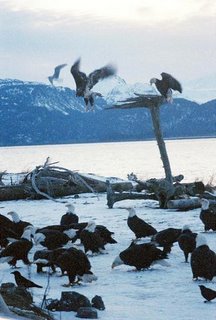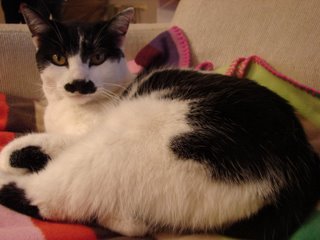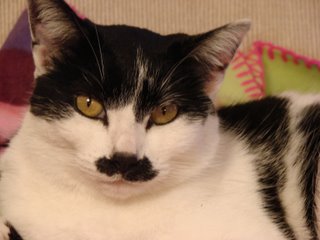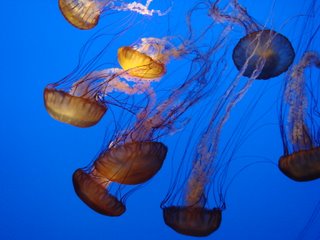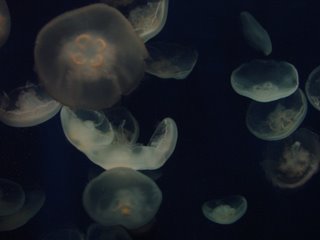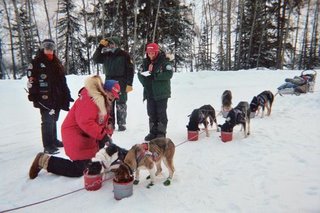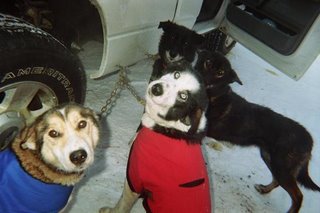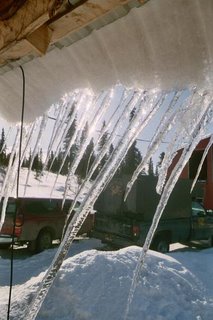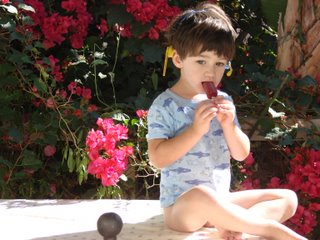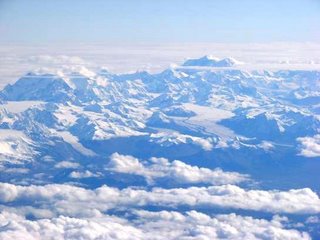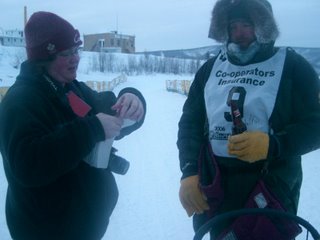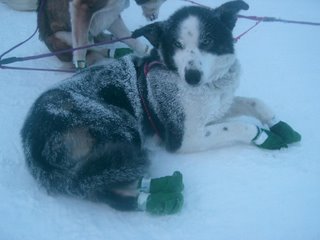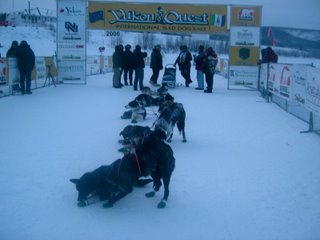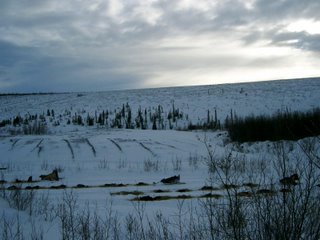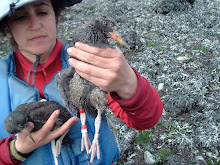Thursday, November 30, 2006
Wednesday, November 29, 2006
Baldies




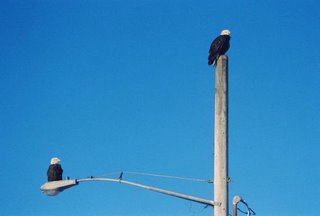
I have never had the opportunity to visit Homer in the summer because I am always off on my Wildlife Tech work in some remote place. But I have gone twice in the winter, as it's not too far of a drive from Anchorage. Although the Homer spit is pretty much closed down, there are tons of bald eagles everywhere. The darker bird is a juvenile. Of course, most of the reason there are so many is that they get fed here. But it's still spectacular to behold. Between the beaches, glaciers and wildlife, everywhere you turn is a stunning view. The year-round residents seem to be very laid-back and gracious, as well. I highly recommend Homer to anyone visiting Alaska.

Monday, November 27, 2006
Saturday, November 25, 2006
Friday, November 24, 2006
Thursday, November 23, 2006
Wednesday, November 22, 2006
I'm in Monterey for Thanksgiving...I'll continue to post a bit dated but hopefully interesting pics! Have a wonderful holiday!!
Tuesday, November 21, 2006
Saturday, November 18, 2006
Friday, November 17, 2006
Thursday, November 16, 2006




Even in the oilfields of Prudhoe Bay and Deadhorse where everything is dull, dingy and drab, there are small bits of whimsy and creativity if you look hard enough! Someone welded happy faces all around Deadhorse, here is one on a sign. And the boat is in the middle of the East side of the Prudhoe Bay oilfield where all you usually see are buildings, pipeline and trucks. This boat serves no purpose I can tell but to amuse people driving by!

It's very surreal buying gas in the Prudhoe Bay oilfields! I worked on an avian influenza project during the first part of this past summer. We were given a truck and a gas card to use at the "gas station" in the oilfields. As you can see, gas is $1.00 a gallon! Hence, this 33 gallons cost 33 dollars! I kept thinking that I wished I could have somehow taken some home with me!
Foggy Island







When I worked with my partners Kevin and Dan on the shorebird migration study this summer, we were taken by helicopter with all of our supplies to our study site where we spent nearly a month and a half. We obviously had to bring everything we needed, which included a 55 gallon barrel of gas to power our generator, a propane freezer for samples, 3 55 gallon barrels of food, sleeping and working tents and lots of random gear! It took two helicopter trips to get it all there. When the helicopter left for the last time, Kevin and Dan went off to explore Foggy Island, which certainly lived up to its name!
Wednesday, November 15, 2006

Here is Dave Dalton, the musher I worked for, at another checkpoint on the Yukon Quest. There were reporters at every checkpoint during the 1,000 mile race and since Dave was in the top four, he was often in demand to be interviewed. The Quest is a huge deal in Alaska. The reporters had to check with me first to ask permission to talk to Dave. They knew that he needed his food and rest at the few and far between checkpoints. He was very accomodating, though, and they got good stories from the trail from him. Dave is a real character who drove cab in Fairbanks for years and has run the Yukon Quest for many, many years. I admire his adventerous spirit and his east coast attitude and had a great time working for him and his dogs!

Here is Dave Dalton at a checkpoint during the Yukon Quest race this past February. At every checkpoint, mushers have to show that they still have all of their mandatory survival gear, such as snowshoes, axe and stove. Since there are so few checkpoints, these items are essential. Dave got into this checkpoint late at night and as you can probably tell it was COLD.

Here is Dave Dalton during the Yukon Quest at a checkpoint in the middle of the race. There are only eight checkpoints in the entire race, as opposed to the Iditarod which is just as long but has double the checkpoints. The dogs know that being at a checkpoint means sleep and they waste no time getting to it!
Tuesday, November 14, 2006

Here I am working on the migration study on Foggy Island on the Sag River Delta by the Bering Sea. We actually had a centrifuge that we ran with a generator to extract plasma from blood samples from shorebirds we caught. That is what I am doing here, which is a pretty delicate and time-consuming process. We had a HUGE propane freezer to store these samples. We joked that would should have asked for ice cream in our resupplies, our freezer was so big. It used a lot of propane and before we got the correct hose, made lots of fumes in our "lab tent," hence working outside like this.


